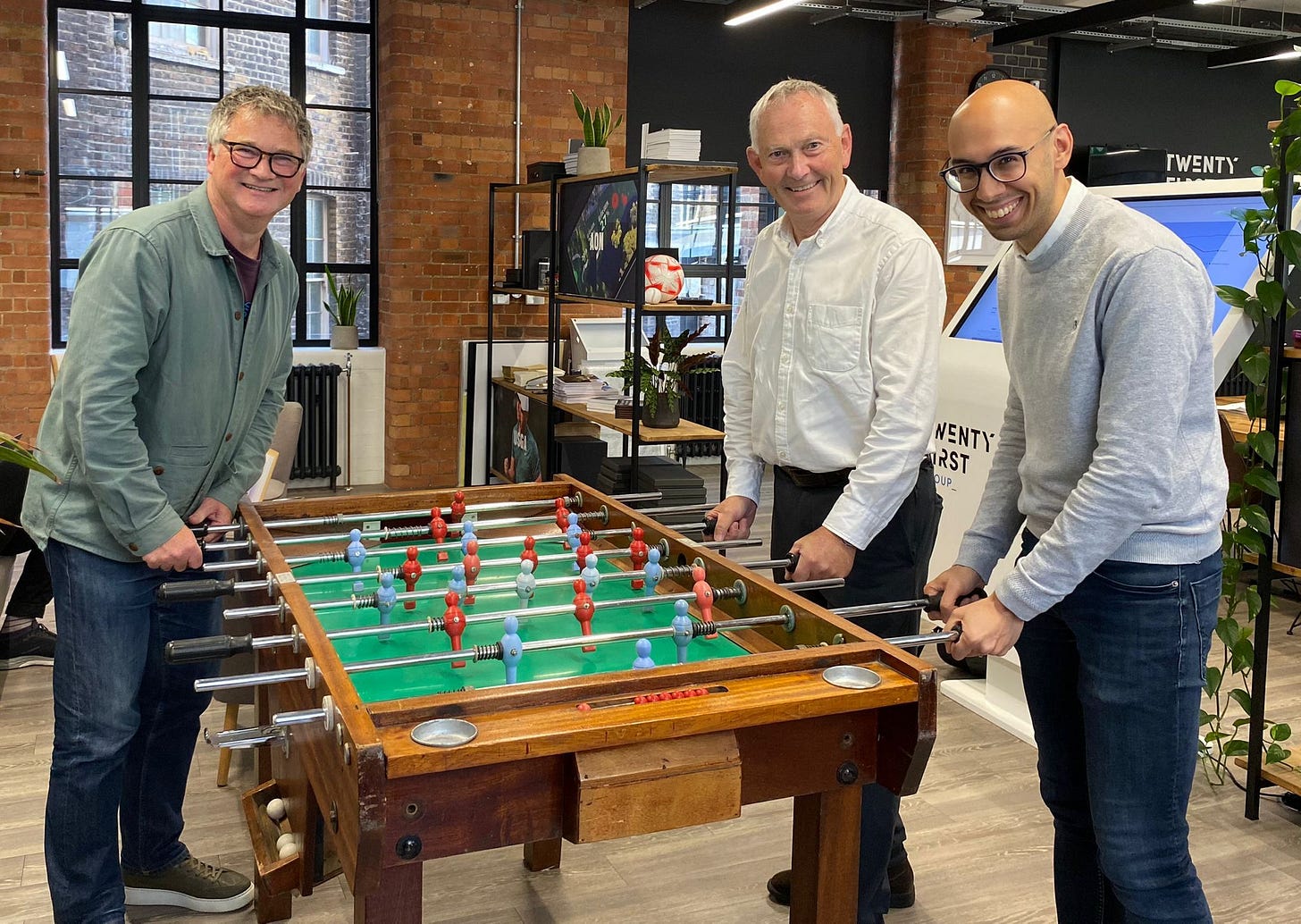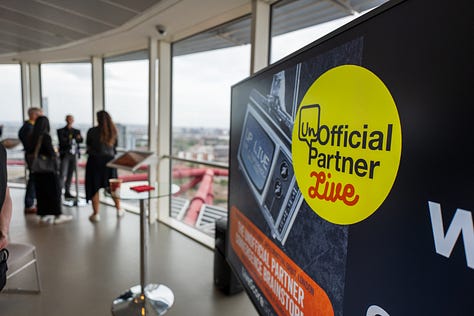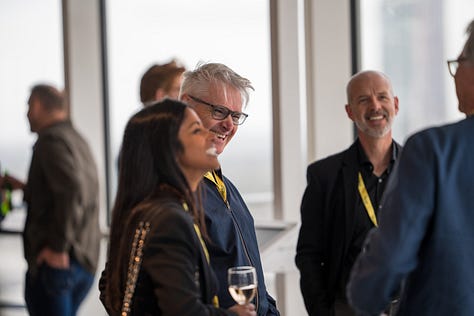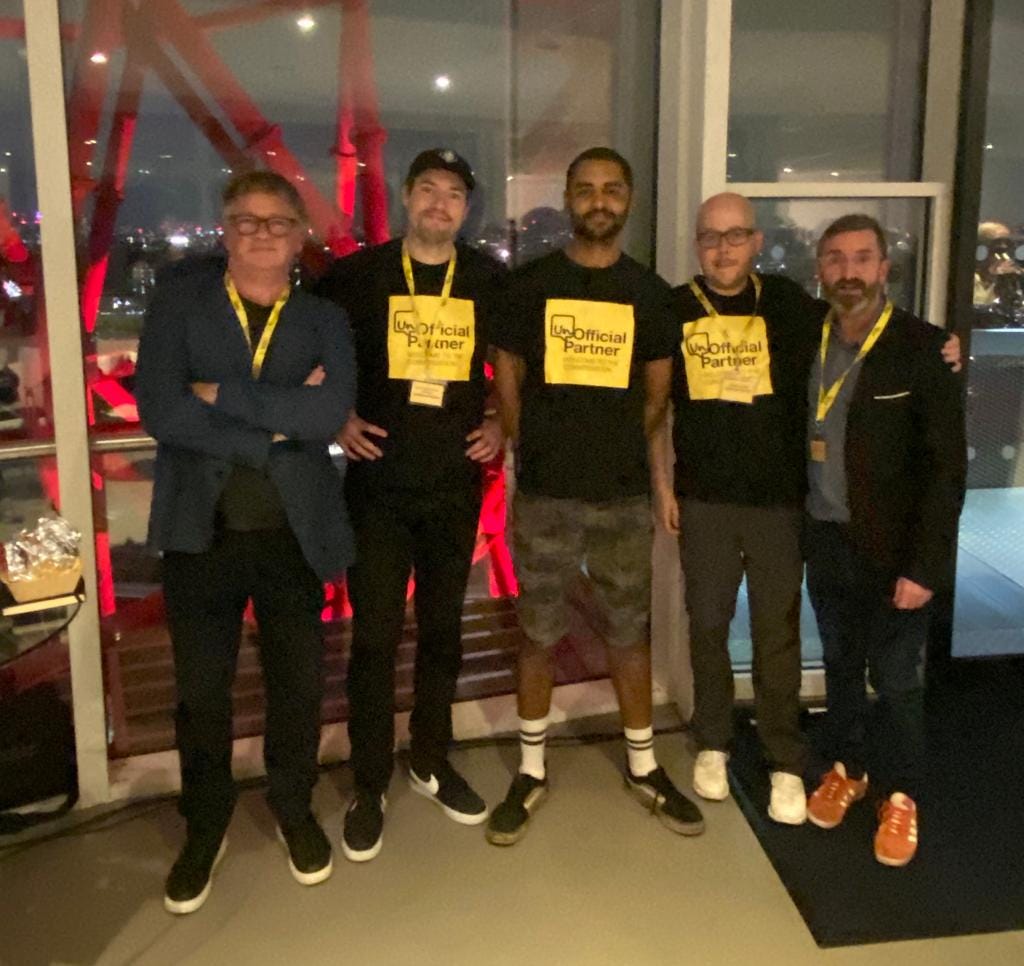Scudamore got lucky; The Premier League has won; Convergence IRL; Fantasy is betting's kindergarten; Saudi has bought 2034; Byron Sharp is nuts for The Hundred; Apple won't buy F1; HS2 v London 2012
Overthinking the sports business, for money
Leaders Week London is now only 2 weeks away, so it’s time to start to plan and tailor your experience to get the most out of it.
Check out all the latest speakers, sessions on the agenda and people in the room via the Leaders website.
Use UP15 for a 15% discount on your Summit passes - visit leadersinsport.com/UP for more information.
Scudamore was lucky
Richard Scudamore is the most successful* sports executive of the last thirty years.
(*What is success in this context? Discuss, and show your workings. Money, cultural relevance, the hard work of keeping a disparate coalition pulling in a similar direction. These are all successes, interdependent).
He was also lucky.
This sounds disrespectful, some sort of lame attempt at a takedown - some early feedback from the podcast is along the lines of ‘who the fuck are you to ask Richard Scudamore about luck?’ variety.
This is not that.
Fwiw, Richard agreed with the assessment.
Success can be misleading.
To consider the role of luck is a useful pushback to the Jake Humphrey Problem, which starts with winning and works backwards, anointing the person in charge as a deity of the leadership industry, putting a halo over all their decisions and actions.
The next step is to condense this complexity down to a handful of ‘lessons’ for the rest of us to follow.
This is, when thought about for more than a few moments, deeply silly.
It ignores context.
And as every self-anointed thought leader of the last decade nearly says: context is king.
Scudamore knows better than anyone, that there’s good fortune in being in charge when success happens.
This is where the word ‘And’ comes in useful.
He was very good AND he was lucky.
Note Nassim Taleb’s mantra: ‘Be careful with because, handle it with care’.
Because assumes a causal link.
Richard Scudamore is an excellent administrator and politician whose tenure coincided with the massive increase in demand for live sports rights, borne of structural changes in the global media industry.
I won't patronise you with a graph showing the rise in Premier League income during the Scudamore era.
Spoiler: it goes up sharply and to the right.
Scudamore didn’t create that macro environment.
He took advantage of it.
He had the force of personality and political wisdom to cajole, nudge and threaten the basket case of selfishness that is the 20 clubs that each year populate the Premier League.
Persuading selfish people that their selfish agenda is best served by the greater good.
That’s what statesmanship looks like, which is the higher form of leadership.
The Premier League has won
The big will get bigger.
We know who they are.
The usual suspects, of which the Premier League is one.
We can add NFL, IPL, NBA and a small handful of others.
The flywheel has done its thing.
The moats have been dug.
It’s theirs to fuck up.
This is an argument with echoes of The End of History, something we used to talk about in the nineties.
See how that turned out.
Jeopardy is a fragile thing
Money could ruin it.
Club owners want moats too.
They’re following the Buffet-Munger playbook, which craves monopoly and abhors competition.
The Super League was an implied threat throughout Scudamore’s tenure.
His great skill was keeping the coalition moving in vaguely the same direction.
He uses the word ‘bargain’ a lot.
This quote gets to the nub of the issue. Note the word ‘tax’.
Richard Scudamore: People talk, don't they, about the big six. That's a very recent notion…but there's always the rest of the league looks enviously at the top, then the top looking somewhat, not dismissively, but wonder why they're being taxed to look after the bottom.
So the whole point - of the centre - is to be able to listen to those views, take them all in. You would, if you were fourth from bottom, be looking at that trap door in a very different way than if you're third from the top.
And so what you have to do is you have to channel all of that and try and find a way of keeping everybody going forward. That is the whole balance, it's not irreconcilable, but it never goes away. It's completely chronic. It's there all the time.
See also: Ayn Rand is guiding sport’s ownership class
Hear the full conversation with Richard Scudamore here.
A big thank you to Tony Pilch and Omar Chaudhuri (right, below) of Twenty First Group for setting up the Scudamore podcast. It was a real treat to spend time with him.
Added value content…

Betting on the next phase
Another Scudamore quote:
Of course, the relationship between sports and media rights has been the defining factor of the last 25 years, probably 30. Yeah, 30 years at least. And so I think we're coming to the end of this phase of this cycle, the absolute, almost perfect correlation between the pay TV development in the broadcast sense, and sport.
So what now?
This gets us to convergence of sports media and gambling.
And more specifically, to last Thursday night, at the top of the Orbit on Queen Elizabeth Olympic Park.









Great audience, brilliant guests, out of this world venue.
And a whole list of people to thank.
Sam Sadi and the LiveScore gang, supported by Matchfit. Special shout out to Alex Cottee for the client side management of the project.
Nathan Homer and the team at Olympic Park - if you’re in the market for event venues, get in touch with them - stunning views and proper food.
Alex Cowell, Rupert Pratt and the Sponsorworks team for the ticketing and guest management journey.
Sean’s UP event support team Leon Radschinski-Gorman, Rocklyn Murray, Steve Archer, from left to right between me and Sean below. (Laura Bacharach isn’t in the photo, but was an essential bit of the jigsaw. She’s also Sean’s wife, so has a lot on her plate more generally).
Love to all.
“Fantasy games are the Kindergarten for betting”
The quote was from Mike Falconer, chief strategist of Sportradar.
The market for fantasy is strategically critical.
It’s the most popular form of fan engagement.
The deregulation of the US market is often described as a ‘gold rush’ for the betting industry.
The reality is that 70% of the market is shared by Fan Duel and DraftKings, which have built customer databases via their legacy businesses in paid fantasy gaming.
They have the customer data, and critically, their wallets.
That’s their moat.
Any new entrant - ESPN Bet for example - must beat them twice, once on brand and then on product.
They have to persuade the core US bettors to jump to another shop because…why? The appeal of the ESPN brand?
Good luck with that.
The conversation with Sam Sadi, Mike Falconer and James Liddy of Deutsche Bank was a fascinating insight in to the realpolitik of the gaming world.
Keep an eye on the plumbers
Last week saw Genius’s new convergence play, BetVision.
It’s built on the data distribution deal with the NFL, which was renewed in July to the 2027-28 season. It takes the data feed from the rights holder and sells it to the betting firms and the media outlets.
The word ‘convergence’ can start to lose its meaning - like content and data - it shape shifts depending on who's talking.
Our evening in Stratford was about the backend: the players, the race and the prize etc - it’s complicated and nuanced, a billion dollar corporate face off.
So it’s useful to see what sports media and gambling convergence currently looks like at the punter’s end:
UP Take - The Unofficial Partner Opinion Generator
A one stop shop for sports business opinions:
Apple won’t buy F1
Saudi has already bought the 2034 FIFA World Cup - today’s announcement is a fudge to get through 2030
The HS2 snafu is an argument for the power of the Olympic Games to force politicians to keep to infrastructure project promises. This opinion came to me while standing at the top of the Orbit, looking at the transformation of east London.
This from Rob Sewell on the UP blog.
The global stock images and videos market size was valued at $4.96 billion in 2022, however, photographers are dealing with the continued decline in image licensing value and the mass misuse of their intellectual property (IP) across social media and the wider web.
In fact, it’s estimated that images are stolen an astonishing 2.5 billion times a day
Legacy fan v Global fan
An UP listener DM.
Byron Sharp is the most influential voice in sports sponsorship
The Buy Side’s guest was Kevin McNair, CMO of KP Snacks.
I thought it was going to be about The Hundred.
It was.
But it was also about how the company views the job of marketing.
This emphasises the central role played by the work of Professor Byron Sharp and the Ehrenberg Bass Institute for Marketing Science.
Sharp’s book, How Brands Grow, is on every brand strategists desk. It’s shapes the world view of many major global brands.
If your selling sport sponsorship and haven’t read it and digested its implications, you will lose.







